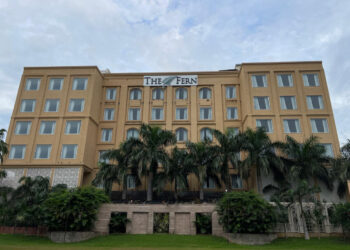– KH News Desk (cbedit@imaws.org)

The Federation of Hotel & Restaurant Associations of India (FHRAI) has made a resounding appeal to Finance Minister Nirmala Sitharaman, who also chairs the GST Council, requesting a uniform 5% GST rate with Input Tax Credit (ITC) across all hospitality and tourism services. The association emphasized how this move could make Indian tourism globally competitive, more affordable for travellers, and a stronger engine for economic growth.
“Tourism is not just about travel—it is a national growth engine,” FHRAI President K. Syama Raju remarked, acknowledging the recent GST reforms unveiled on Independence Day as a positive step. He reinforced that harmonised tax policy is vital to realise India’s Vision 2047 goals and to attract greater investment.
India’s tourism sector currently contributes roughly 5% of the country’s GDP, and FHRAI projects that contribution could double with the right policy support. The industry is also a significant job creator—every rupee invested yields ₹3.5 in output, and one direct job generates 3.2 indirect jobs.
FHRAI flagged that India’s existing GST structure makes tourism offerings less competitive, especially when compared to Asian peers like Thailand, Indonesia, Vietnam, Sri Lanka, Singapore, and Malaysia, whose GST or service tax rates range between 6% and 10%.A high tax regime diminishes value for travelers and impacts India’s global appeal.
Beyond the uniform tax rate, FHRAI recommended delinking GST on food and beverage services from hotel room charges, citing operational inefficiencies and potential revenue losses arising from their linkage. Additionally, the association requested that past GST demands be regularised on an “as-is” basis, aiming to resolve disputes caused by interpretational inconsistencies.
This call to action echoes across industry voices. The Hotel Association of India (HAI) also welcomed the broader GST reforms and backed a 5% unified GST rate with ITC. They argued this step could substantially elevate India’s hospitality competitiveness and support the ambition of attracting 100 million foreign tourists annually by 2047.
What This Means for Kitchen Herald Readers
The FHRAI’s proposal signals a future where Indian hospitality becomes more cost-effective and investor-friendly. A simplified GST framework would:
- Lower costs for both domestic and international travelers—driving stronger demand.
- Enhance ease of doing business, cutting down on errors and bureaucratic burdens.
- Stimulate job creation across hospitality, travel, food services, and allied supply chains.
- Strengthen ndia’s position against regional tourism hubs, offering similarly high-quality experiences at more competitive rates
Looking Ahead
As policymakers deliberate, the FHRAI urges swift action to align GST policy with India’s economic and social priorities. Simplified tax structures and backward-looking relief measures could unleash a powerful multiplier effect—from tourism arrival growth to rural benefits, job creation, and cultural tourism promotion. Such measures would serve as a cornerstone in the journey toward Vision 2047.






